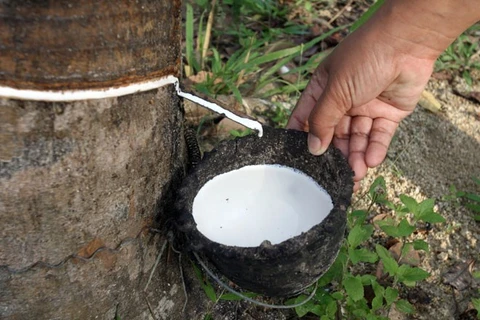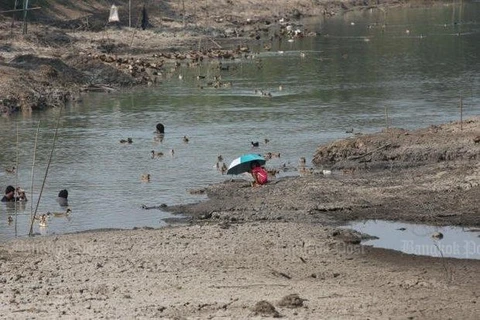Bangkok (VNA) – The Thai Royal Irrigation Department is researching the feasibility of the Mekong-Loei-Chi-Mun project, which aims to build a tunnel diverting water from the Loei River, a branch of the Mekong River, to the drought-stricken Northeast region.
If approved, the tunnel project is expected to annually pump 2 billion cubic metres of water based solely on gravity principals, benefiting some 1.7 million households.
The study lasting through to December 31 will decide whether the construction begins or not.
However, environmental activists are protesting against the 2.8-billion-USD project. They argue that gravity alone could not drive water through the tunnel, and the project will worsen the condition of saline intrusion across the region. On the other hand, they support restoring natural water sources and building reservoirs.
Basin and diverter constructions by countries in the upper Mekong River, such as Thailand, China and Laos, significantly affect the water supply for downstream nations.
Experts said Vietnam is facing a range of severe consequences from upstream constructions, including water shortage, saltwater intrusion and silt reduction. These may cause a fishery loss valued at up to 1 billion USD per year.
The country’s Mekong Delta region is bearing the brunt of a serious drought and saltwater intrusion, which is considered the worst in the past 100 years.-VNA























